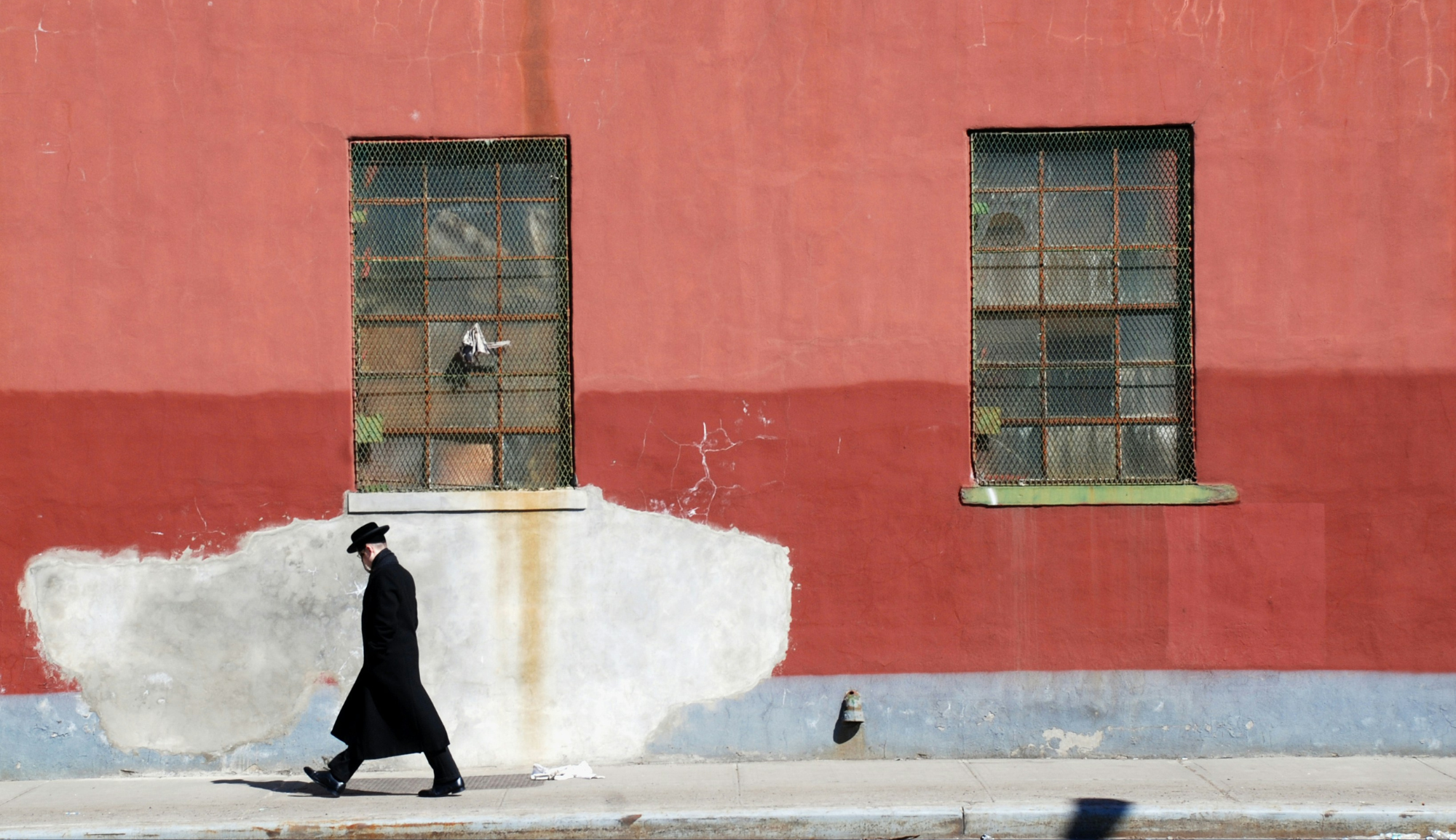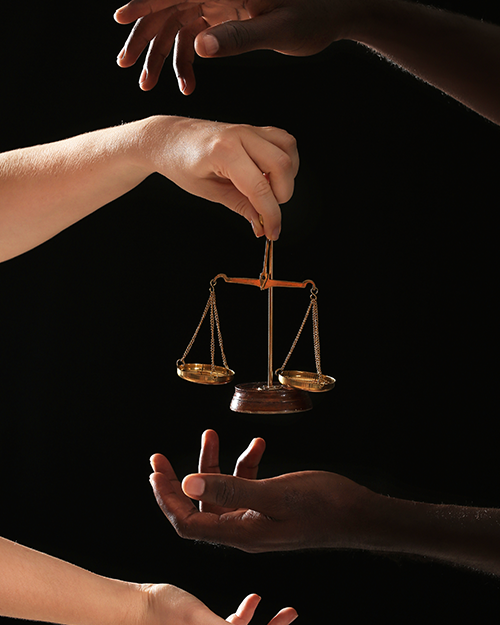On December 17, 2014, a rosh yeshiva stood at the podium of Yeshiva University’s Glueck Beit Midrash, and urged the usually cloistered world of the beit midrash to watch the video of Eric Garner’s tragic death at the hands of the police. Read this rosh yeshiva’s words:
I implore you, again, to watch the video. At a minimum, you should be able to feel the pain of a man whose blood was spilled needlessly, the pain of his family, and the pain of his community, that with a good deal of justification, feels oppressed.
The rosh yeshiva, Rabbi Dr. Jeremy Wieder, used his own pained reaction when watching the video of Garner’s death as an invitation to speak about the Jewish values of engaging with the pain of the world around us:
The Netziv (R. Naftali Tzvi Yehudah Berlin, last head of the Volzhin Yeshiva, d. 1893), in his somewhat famous and very powerful introduction to his commentary on humash (the Pentateuch), in Sefer Bereshit (Genesis), speaks about the fact that Sefer Bereshit is referred to as Sefer Ha-yashar (the Book of the Just.) Why is it called the sefer ha-yashar? The yesharim (the just ones) were the avot (patriarchs) —Avraham, Yitzchak, and Ya’akov. He explains that they were called yesharim because of their concern for people who were not in their own dalet amot. Avraham Avinu pleaded with and badgered the Ribbono shel olam (Master of the Universe) on behalf of the people of Sodom, who were the worst kinds of wicked people in the world you could have, but because of the patriarchs’ overwhelming sense of magnanimity, their generosity, their spirit of ahavat ha-briyot (love of humanity), they cared about everyone around them. As the children of Avraham, Yitzchak, and Ya’akov, we have a responsibility to follow in their path and show our concern and compassion for those around us who are downtrodden.
Orthodox Jewry has long had a complicated relationship with social justice, along with a broader question of engagement with the world beyond Orthodox Jewry. Why is this so? The question comes down to two components: The attitudes of the Torah and the attitudes of its adherents. In the former category are questions of the Torah’s view(s) on political and ethical issues, namely: what does the Torah say about social activism? In the latter are questions about the socio-cultural sensibilities of the Orthodox community, namely: how does this boundaried group of people balance the values of their host culture with their religious values? For reasons relating to both of these questions, too often it can seem like the Torah remains outside the confines of social justice. It can feel to many that the more engaged one becomes in the insular-ish world of the Torah, the less engaged they are in the fight for representation, equality, and diversity that comprise the world of social justice.
Jeremy walks a tightrope in his position as an outspoken moral voice within an Orthodox institution. He is a deeply thoughtful leader continuously posing these moral questions and has considered his community’s positioning carefully. This is how he frames the dilemma:
Avraham Avinu said to the Bnei Heit (Hittites): Ger veToshav Anokhi Immakhem — A stranger and resident I am amongst you.
Rav Soloveitchik famously commented about this: “Abraham lived among various people of divergent faiths. When he negotiated with the sons of Heth (of the Hittites) for a burial plot for his wife Sarah, he defined his status: ‘I am a stranger [immigrant] and a resident among you’ (Gen 23:4). He was basically declaring that the sectarian faith he was propounding did not preclude his commitment to further the welfare of the general society.” (Reflections of the Rav II, pp.74-75)
A resident and a stranger, at home and yet nevertheless apart. He continues:
Perhaps the greatest challenge any ben or bas-Torah in our community faces is attempting to navigate the balance of Ger veToshav — when are we part of the broader society and when are we apart. And when we speak of this dilemma, I am not speaking about issues of halakhah. Halakhah by its nature is mostly clear and immutable. It may change in its application to a different reality, and perhaps even shift slowly, almost imperceptibly, over very long periods of time. There may be a shift from one approach to another within the halakhic tradition based upon changing circumstances, but fundamentally halakhah is immutable and, at least in broad strokes, clear.
Instead, what I speak of here are what we would term “Torah values;” what might best be described as the broader picture that the details of halakhah paint. If the various halakhot consist of all of the trees in the forest, then “Torah values” would be what one sees when stepping back and gazing at the bigger picture; it is not merely a collection of individual trees, but a magnificent, verdant forest — the intertwining of the branches of various trees, as well as the magnificent rays of light that shine through the gaps.
The forest of “Torah values,” as he puts it, is “magnificent, verdant,” and is also the space of much controversy over the millenia. From the prophets to the abolitionists, from the “Great Kosher Meat War of 1902” to the 2020 election, Jews have been divided on these Torah values. No matter your feelings on the topic, Jeremy’s moral voice invites us all to think more deeply and compassionately about this world.
Jeremy received his ordination from RIETs and holds a PhD in Judaic studies from New York University. A scholar, teacher, and rebbe, he is an adjunct professor in the Bible department of Yeshiva University, as well as a rosh yeshiva at RIETS, Yeshiva University’s seminary for religious study. His intellectual and spiritual interests are varied, and his articulate and impassioned voice in favor of a deeper, more moraled thinking have gained him many students from near and far. To get more of a sense of who Jeremy is, listen to his memorable sichot Mussar, famous in Yeshiva University for his consistently clear-headed morality. Rabbi Jeremy Wieder joins us to talk about the Torah, social justice, and what gets lost in between.
Listen to our podcast with Rabbi Jeremy Wieder.





































